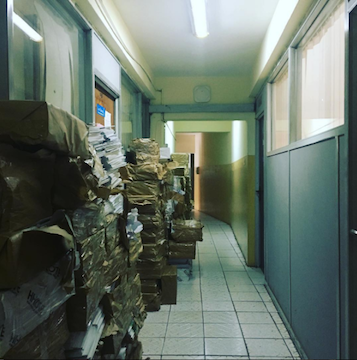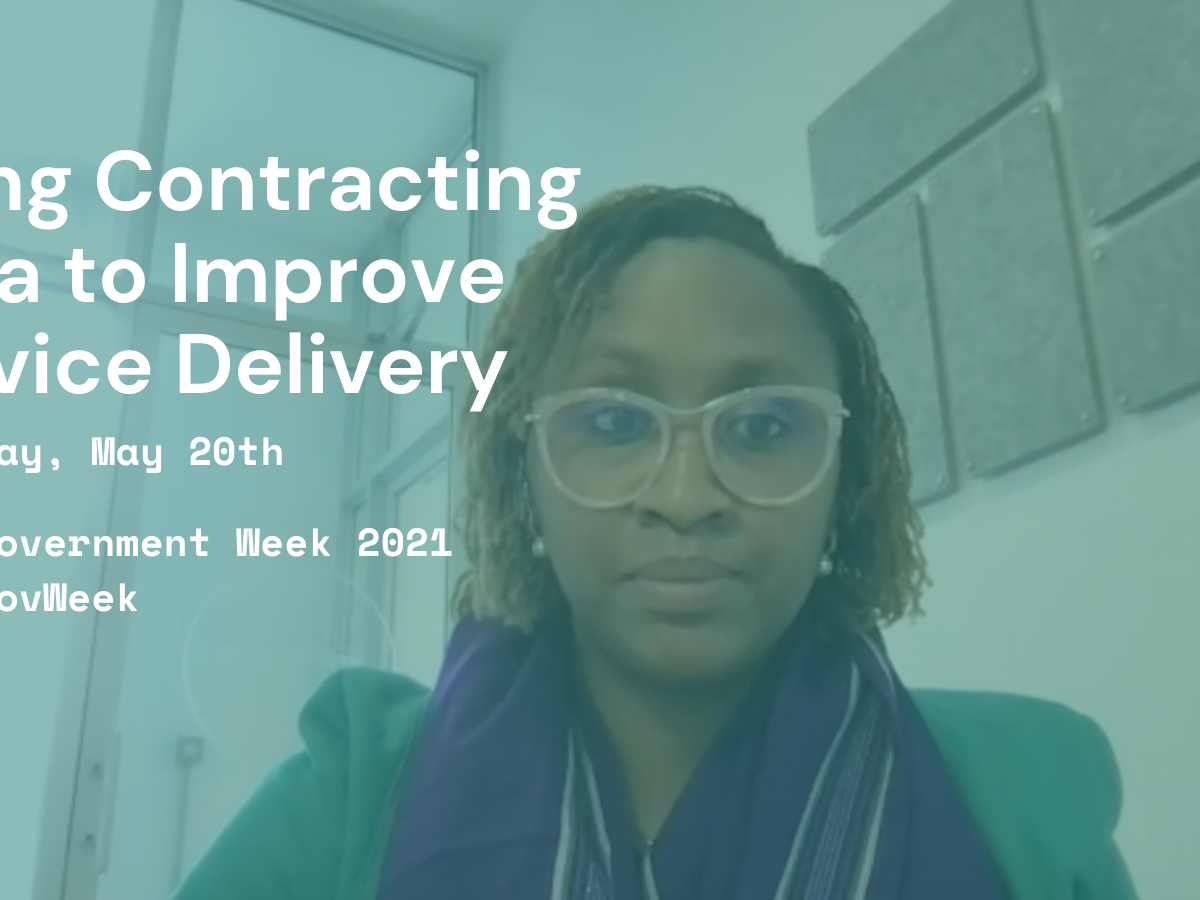Challenges to Doing Procurement Right in West Africa
“Public procurement” sounds bureaucratic and boring, but the stakes of doing it well are high. In West Africa, where we have recently completed a series of scoping studies with the Open Contracting Partnership (OCP), government procurement accounts for nearly 15% of GDP. Beneficiaries of the goods, services, and works procured through public contracts — citizens — depend on these funds being well spent. So do the livelihoods of workers who will construct, grow, and produce as a result.
Through our West Africa open contracting studies project, DG and the OCP found positives and negatives about the procurement environments in the countries studied: Nigeria, Ghana, Senegal, Liberia, Guinea and Cote d’Ivoire1. Despite the advances, which include stronger legal frameworks and institutional organization for procurement, we identified a number of commonly occurring trouble areas throughout the procurement cycle.
In this post, we highlight some of these challenges, along with some of the solutions these countries are implementing to address them.

A cramped procurement office in Nigeria
In the planning phase, there are two primary issues to tackle:
-
Budget preparation and procurement plans: In a number of countries, the procurement process is delayed due to delays in budget preparation and approval. In some instances, post-adoption changes to procurement prevent the start of procedures for approved purchases.
-
Conducting appropriate assessments and engaging beneficiaries: Few countries provide information on the results of needs assessments, environmental impact reports or other studies that may be undertaken in advance of a procurement. Affected citizens are not often consulted, which opens the door to misunderstanding and even negative feelings throughout the process.
As governments begin to adopt e-procurement solutions (as Nigeria and Ghana, and perhaps others, are likely to do in the coming years), exploring opportunities to link procurement planning systems with other information systems can drive healthy practices. For instance, procurement planning can be linked directly to budget systems, requiring that procurements adhere to approved budgets. Linking procurement planning to tenders can ensure that the latter align with budget allocations, while alerts can be set to inform procurement authorities if tendering moves ahead without completion of required assessments. A unique identifier, as suggested by the Open Contracting Data Standard, can help to ensure these links.
The challenge of the tender phase — in West Africa and beyond — is to prevent the intentional or inadvertent limiting of competition for public contracts. Several common troubles found in our study include:
-
Fair announcement of public tenders: Legal requirements related to the posting and timing of tender announcements are often not respected. This could be due to the compression of timelines, the incongruity of tender preparations with the publishing of key publications, a lack of funding for advertising, and many other issues.
-
Equitable pre-bidding procedure: In some cases, pre-bidding procedures were found to be used to narrow the specification of a project to the exclusion of some bidders on unclear grounds.
-
Combatting informal tendering procedures: Businesses interviewed suggested the existence of parallel tendering procedures, whereby a formal process often gives way to closed-door negotiations.
Monitoring the competitiveness of the tender process can reveal valuable information about the actual challenges faced by companies bidding on public contracts. Depending on the quality of data collected by governments, these data can often be used to understand how many bidders bid on various procurement types, the prevalence of disparities between procuring entities or regions, or whether other factors are influencing the capacity of qualified bidders to participate. Other analytics can help detect whether competition is real or if some suppliers are colluding to give the appearance of a fair competition.
The award phase features two challenges related to the process of selecting a supplier:
-
Secrecy of the evaluation: Although evaluations must be conducted in secret, losing bidders should have an opportunity to understand why they lost, while participants should have an opportunity to blow the whistle when needed.
-
Inadequate complaints procedure: Nearly all the countries have a formal complaints procedure, but in few instances can complainants be sure that their concerns will be treated with impartiality.
While several of the countries studied exhibit good practices in areas related to these challenges, none of the countries offers the full suite of feedback/redress mechanisms. This would include: 1) clear evaluation criteria established prior to the evaluation process; 2) a public summary of the evaluation; 3) opportunity for losing bidders to receive feedback; 4) opportunity for evaluation members to blow the whistle on unfair practices, and; 5) opportunity for losing bidders — and even the general public, as in Guinea — to protest the award. For participants and citizens to have confidence in the complaints process, complaints should be received by an independent body, with a public complaint and outcome summary, as in Nigeria.
Our next blog post on this topic will focus on data collection and public access. But this is the key challenge facing countries in the contract phase of the procurement process.
-
Lack of access to contract information: None of the participating countries provide public access to contracts, and few provide key information. A lack of public access to contracts and amendments altering the scope of work and/or increasing the budget present a significant opportunity for reduced value for money (due to “up charges”) or corruption.
Publishing contract information is the only way to assure the public that contracts are being implemented effectively and on time. Because this information is not often available, many civil society organizations in the region monitor construction and works projects relying on budget data. This can create unnecessary confusion and give the appearance that malfeasance is taking place when it may not be.
In the implementation phase, there are several key challenges, including a deficit of data disclosure:
-
Delays in payment processing: Poorly functioning public financial management (PFM) systems and paper-based project management tools often result in long lead times for payments to implementing firms (often in excess of 90 days). These payment delays reduce the appeal of public procurement opportunities for international firms, and can be damaging to cash flow management of SMEs.
-
Lack of information and strong a posteriori oversight: Little information is available about project implementation and payments, preventing citizens and governments from ensuring that procurement is resulting in efficient service delivery. In some countries, auditing bodies lack capacity and resources to conduct audits that would help ensure service delivery and value for money.
Adoption of e-procurement solutions and integration with PFM systems may reduce some of the barriers to on-time payment processing and facilitate payment tracking. They can furthermore facilitate the transfer of data necessary for civil society, private sector and audit agencies to conduct real-time and a posteriori oversight. Some challenges can be resolved through an increase in political will and training: In Côte d’Ivoire, there have been 171 cases taken to court by the regulatory authority (ANRMP) since 2010, against 0 prior.
1The last study was conducted by the OCP and the World Wide Web Foundation, and was included in the synthesis report for this project.
Share This Post
Related from our library

The G20 Must Recognize the Power of Procurement for Social & Economic Good
Procurement deserves a strategic seat at the top table across all of the Italian G20 presidencies. Anti-corruption priorities and open contracting solutions can drive progress in a number of areas.

Building Procurement Back, Better
As governments look to “build back better,” we can expect an influx of government spending to stimulate the economy, and a shift in priority goods and services to purchase. While the world transitions from emergency response to recovery, governments’ focus will shift from using technology to procure other products, to procuring technology products themselves.
